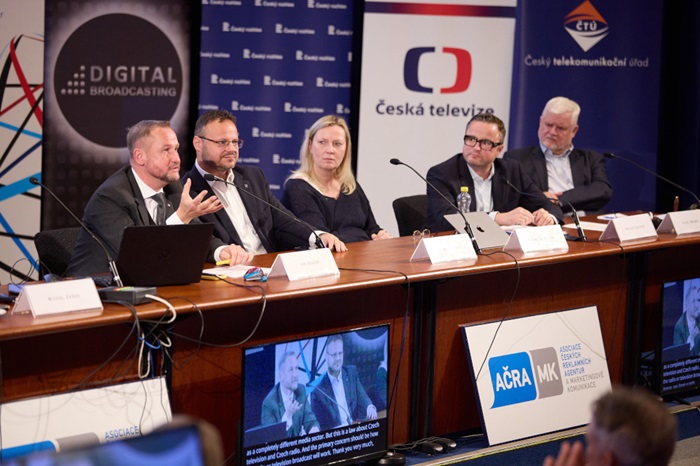COMMERCIAL MEDIA HAVE RESERVATIONS ABOUT THE BIG MEDIA AMENDMENT

Representatives of the private media sector do not like the new form of the draft media amendment. They see the wording of the accompanying Memorandum, which is supposed to describe more precisely the tasks of public service media, as essential.
The commercial media also have reservations about the modified draft of the major media amendment, which has so far appeared to be a step towards a compromise solution. According to Echo24.cz, private media have even sent a letter to Prime Minister Petr Fiala expressing their "categorical disagreement" with the amendment. In it, they allegedly said that the draft media amendment contradicts EU rules and the principle of treating the funds of concessionaires as a good steward. According to the server, the letter was signed by representatives of the private radio market, such as Jiří Hrabák (Rádio Impuls), Martin Hroch (Radio United Broadcasting) and Marek Singer (FTV Prima).
The modified draft of the big media amendment was presented in mid-May, but the representatives of the commercial sector have not yet categorically commented on it. Even at the Digimedia conference held on Thursday 13 June, there was no harsh criticism. Their statements at the conference indicated that they disagreed with some points of the amendment and that they envisioned modifications to the amendment, but they did not mention the sharp disagreement addressed to the Prime Minister.
Representatives of the private media on Digimedia spoke of how they now consider the key issue to be how the role of the public service in television and radio broadcasting will be specified in the accompanying Memorandum. The creation of the Memorandum is just part of the preparations for a major media amendment that is expected to bring more revenue to Česká televize and Český rozhlas from TV and radio licence fees. Commercial players have said that they consider the text of the Memorandum to be key to maintaining the principles of the dual broadcasting system for the coming years.
"We have been saying from the beginning that we are in favour of the dual system. So we want to create a field of action for public service media and we want to discuss ways of financing public service media. However, advertising revenue is existential for us, which is why we want to be present at the creation of the memorandum," Klára Brachtlová, president of the Association of Commercial Television (AKTV), told the conference. She did not want to specify which programmes or formats ČT should or should not broadcast. "Public service television should produce formats with social overlap, in the public interest and for minorities. However, I consider it a problem when the cost of sports rights makes up 30% of the budget for the production of programmes. At the same time, the cost of these rights is 30% higher than the cost of news and journalism and 50% higher than the cost of drama production. This is a problem," she described.
Jan Souček, director general of Czech Television, responded by saying that Czech Television is obliged to broadcast events of considerable social importance under the 2001 Act on the Operation of TV and Radio Broadcasting. The accompanying decree of the Ministry of Culture includes, for example, the Olympic Games or the World Cup in football and the World Cup in hockey, or, among others, all matches of the Czech team at these championships.
According to the general director of Radio Impuls, Jiří Hrabák, a media landscape is currently taking shape that offers new opportunities for the creation and dissemination of media content. "The private sector has the right to know on which field it will play. It is necessary to secure the rules of operation for the private sector as well. It should be clear how broadcasting will operate," he said. He reiterated that defining the role of the public service media is essential for discussions on funding. "We do not want to discuss how much to increase the fee. That is a political decision and the responsibility of parliament. We want it to be clearly stated what the public gets in return. But here the procedure has been the opposite. I don't know whether a CZK 10 increase is too much or too little. I do not know what the public's idea of a public service is. Perhaps the fee should be increased by CZK 50 or by nothing. Has there been a big expansion of the public service? Is there a need? Should it be bigger or smaller?" Hrabák asked. In his opinion, the state should ensure the development of the dual system for the next 10 years. In his view, a smaller role for commercial media in the dual system could also threaten media pluralism if a strong public service media turned into a media dominated by the ruling political force.
The media amendment proposed by the Ministry of Culture foresees an increase in the radio fee by CZK 10 to CZK 55 per month and the television fee by CZK 15 to CZK 150 per month. The amendment is expected to be considered by the government in June. According to the plan presented so far, its text should head to the Chamber of Deputies before the parliamentary recess. The proposal foresees that it should enter into force at the beginning of 2025.
Source: mediaguru.cz



